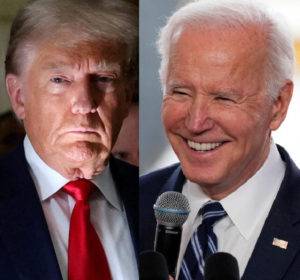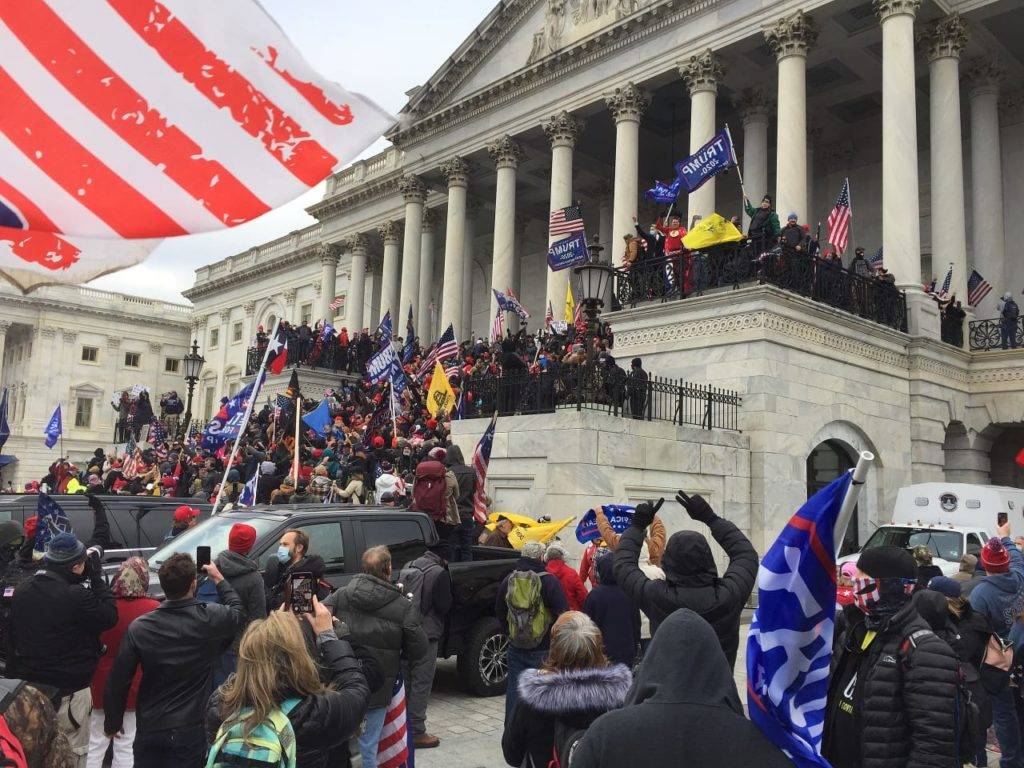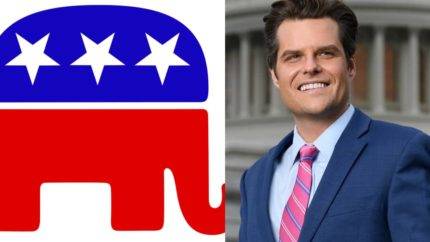In response to recent rulings by the Colorado Supreme Court affirming that Donald Trump engaged in insurrection, Republican allies in Congress have initiated a formal resolution to counter these claims. Led by Rep. Matt Gaetz (R-FL) and Rep. Elise Stefanik (R-NY), the resolution aims to assert that Trump is not an insurrectionist. While the resolution carries no legal weight, its proponents see it as a crucial piece of evidence to present to the Supreme Court, signaling a staunch defense of the former president.
Gaetz emphasized the role of Congress in making such declarations, dismissing the authority of state judgments and asserting the rights of voters to support their chosen candidate. However, critics point out the flawed argument that supporting an ineligible candidate is akin to voter suppression, highlighting the disconnect between legal eligibility and individual choice in voting.
Republicans Rally Behind Trump’s Defense
Despite lacking sufficient support for the resolution’s passage, Republican lawmakers, particularly those aligned with the MAGA faction, are vocal in their support of Donald. Congresswoman Marjorie Taylor Greene (R-GA) denounced accusations of insurrection as Democratic propaganda, urging truthfulness in media coverage. Representative Eric Burlison (R-MO) dismissed the severity of the Capitol attack, downplaying the presence of weapons and characterizing the events as mere expressions of free speech.

Representative Lauren Boebert (R-CO) echoed these sentiments, denouncing ongoing legal proceedings against Trump as a “witch hunt” fueled by leftist agendas. Their collective defense of Trump underscores the deep ideological divisions within Congress and the broader political landscape, with staunch loyalty to Trump prevailing among many Republicans.
Opposition Mounts Against Resolution
In response to the MAGA resolution, a petition sponsored by Courage for America and The Daily Kos is circulating, urging Congress to reject Gaetz’s assertion that Donald did not incite insurrection on January 6, 2021. The petition frames the resolution as an attempt to perpetuate falsehoods and rewrite history, calling on lawmakers to oppose it. This opposition highlights the ongoing debate over the events of January 6th and the implications for accountability in American democracy.
As the resolution moves through Congress, it serves as a focal point for the broader reckoning with the legacy of the Capitol attack and the role of Donald and his allies in fomenting political unrest. With divisions deepening between Trump loyalists and detractors, the resolution underscores the ongoing struggle to define truth and accountability in American politics.

Political Fallout from MAGA’s Response to Verdict Against Trump
In the wake of the recent court verdict against former President Donald Trump for his alleged involvement in the insurrection at the Capitol, reactions from within the MAGA camp and the House of Representatives have flooded the political landscape. Carol N, a prominent figure associated with the MAGA movement, took to social media to voice her concerns. She warned that if Trump faces consequences, so too will his allies in Congress. Despite acknowledging potential delays, she asserted that the repercussions of Trump’s actions will inevitably taint those associated with him. This sentiment underscores the deep-rooted loyalty within the MAGA community and the potential consequences for elected officials tied to the former president.
Amy Hampal, another voice within the political sphere, criticized the strategy of using Representative Matt Gaetz as a spokesperson for the MAGA movement. Hampal labeled this decision as a sign of desperation, highlighting concerns about the credibility and integrity of those aligned with Donald. She went further to brand them as traitors to both the nation and its founding principles enshrined in the Constitution. This critique sheds light on the internal divisions and skepticism within the broader political landscape, as individuals assess the implications of continued allegiance to Donald amidst legal challenges and public scrutiny.
Congressional Response and Implications
Within the House of Representatives, tensions have escalated as lawmakers navigate the fallout from Trump’s legal battles. The staunch defense of Donald by certain members, exemplified by Gaetz’s vocal support, has further polarized an already divided political arena. This allegiance has sparked debates over accountability and the role of elected officials in upholding democratic norms. As the specter of impeachment looms, lawmakers face mounting pressure to either distance themselves from Donald or double down on their support.

The ramifications of this political divide extend beyond individual reputations to the functioning of the legislative branch itself. With partisan lines drawn ever more sharply, prospects for bipartisan cooperation on critical issues such as infrastructure, healthcare, and national security appear increasingly dim. Moreover, the erosion of trust in political institutions fueled by these controversies threatens to undermine the very foundation of American democracy. As the nation grapples with the aftermath of Donald’s presidency, the actions and rhetoric of MAGA-aligned representatives in the House will undoubtedly shape the trajectory of U.S. politics in the months and years to come.
Table of Contents
Discover more from OGM News NG
Subscribe to get the latest posts sent to your email.














